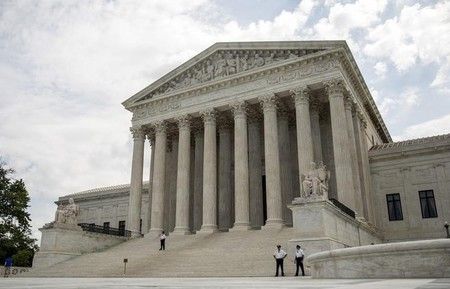Advertisement
Supreme Court lets debt collection class-action suit proceed

By Lawrence Hurley
WASHINGTON (Reuters) – The U.S. Supreme Court on Monday allowed a class-action lawsuit against debt collector Encore Capital Group Inc to move forward, declining to hear its claim that such companies should be protected from state “usury” laws barring money-lending at unreasonably high interest rates.
The court left in place a May 2015 ruling by the 2nd U.S. Circuit Court of Appeals in New York that found that Encore’s Midland Funding and Midland Credit Management units were not national banks with legal protection against state usury laws.
The class-action lawsuit was brought by a New York borrower named Saliha Madden who objected to the 27 percent annual interest rate she was being charged.
Debt collection companies typically buy debt from banks and other creditors for pennies on the dollar, then try to collect higher amounts from people who owe the debt.
Madden took issue with the interest rate that Midland sought to impose on roughly $5,000 in debt it had bought that she had incurred on a credit-card account opened years earlier at Bank of America, court papers showed.
The appeals court said debt-collection companies did not deserve protections of the federal National Bank Act, including against claims that they violated the federal Fair Debt Collection Practices Act.
“Extending those protections to third parties would create an end-run around usury laws for non-national bank entities that are not acting on behalf of a national bank,” the court ruled.
The appeals court decision reversed a September 2013 decision by U.S. District Judge Cathy Seibel in White Plains, New York.
The Supreme Court action came at a time of heightened concern over interest rates that borrowers are forced to pay by some lenders. For example, the U.S. agency charged with protecting consumers from financial abuse announced a proposal on June 2 to limit short-term borrowings known as “payday” loans, which can carry annual interest rates as high as 390 percent.
(Reporting by Lawrence Hurley. Additional reporting by Jonathan Stempel.; Editing by Will Dunham)

